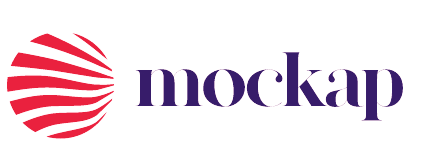Our Blog

- March 15, 2024
- 0 Comments
- Emmanuel Samuel Agbedejobi
Gamifying Assessments for Boosted Motivation
Unlocking Learning Inspiration: Gamifying Assessments in Nigerian Classrooms
If you walk the hallways of Meadowbrook Academy in Lagos, you'll likely encounter students feverishly huddled over tablets, not for mere entertainment, but in spirited competition over coursework. These students are players on immersive "knowledge quests" where concepts are mastered to level up characters and earn badges.
Welcome to the innovative world of gamification, where principals of game design are infused into educational experiences to inspire engagement, drive, and comprehension. By injecting elements like narratives, scoring, and competition into assessments, Nigerian educators are transforming the all-too-common phenomenon of student disengagement.
"In conventional classrooms, quizzes and practice activities feel like chores to just 'get over with'," explains Mrs. Lola, a maths teacher at Meadowbrook. "But by turning those assessments into gameplay with progression paths, students get motivated in an entirely different way."
In Lola's gamified algebra class, students embark on "Math Rangerz Missions" where they take on the roles of cadets conversant in algebraic operations. As they correctly solve problems, their ranger avatars earn expertise points and badges representing their mastery.
"They're fully invested in leveling up their rangers while helping the narrative's story world," Lola describes. "Algebraic concepts they once dreaded studying are reinvigorated as means to advancement."
The impact on Meadowbrook student performance has been notable. In Lola's gamified algebra classes, end-of-term assessment scores surged over 40% compared to non-gamified sections. Engagement surveys reflected a nearly 70% boost in self-reported motivation levels.
"It definitely requires more creativity and prep work on the instructor's side to build out immersive gamified narratives tied to educational content," Lola admits. "But seeing students' energy and passion for learning get reignited makes it incredibly rewarding."
Beyond cultivating enthusiasm, gamification taps into students' innate desires for achievement through elements like progression tracking, leaderboards, and collaborative gameplay. At Federal Science Academy in Abuja, chemistry teacher Okoro has experimented with group missions.
"For topics like the Periodic Table, I'll divide the class into teams tasked with becoming 'masters' of specific element groups," Okoro explains. "Students take turns tackling relevant chemistry challenges, strategizing and combining their knowledge to level up their guild."
The social facets of gameplay spark peer learning and spur accountability. "Everyone has to pull their weight since the entire team's progress gets halted until all members understand a concept sufficiently," notes Okoro. Overall scores for gamified classes averaged 25% higher compared to non-gamified.
Gamification also affords opportunities to incorporate real-world scenarios with tangible consequences into assessments, further crystallizing learning relevance for students.
At Glisten College in Port Harcourt, physics instructor Ugochukwu transformed his mechanics lessons into an episodic adventure placing students in the roles of city planners and engineers.
"The narrative starts with them having to apply concepts properly to construct safe bridges and roads for Abuja," Ugochukwu says. "If their structural calculations are off, they're shown animations of their infrastructure crumbling with severe repercussions for the population."
The immersive storylines not only made lessons more gripping but helped cement conceptual connections for pupils. End-of-term evaluations indicated over 50% knowledge retention improvements versus traditional assessments.
Of course, achieving effective gamification requires learning designers to carefully integrate game elements as reinforcements to educational objectives rather than mere aesthetics. Simply slapping badges onto existing quizzes won't suffice.
"There has to be coherence between the story, the gameplay mechanics, and the actual content outcomes," advises Dr. Oti, a learning specialist at the University of Nigeria, Nsukka. "Every narrative arc, challenge, and reward system maps to specific skills mastery."
Despite added upfront planning, the motivational payoffs achieved through thoughtful gamification make it an approach well worth exploring across Nigerian schools.
"In our modern world surrounded by immersive digital experiences, we have a unique window to tap into elements of play and competition that resonate with students," posits Oti. "When learning experiences feel genuinely engaging, retention and comprehension grow almost organically."
As innovative programs like those at Meadowbrook Academy illustrate, transforming assessments into gameplay adventures positions Nigerian learners for scholastic success. By fusing subject mastery with satisfying achievement loops, the quest for knowledge itself becomes an inspiring reign to conquer.

0 Comment(s)